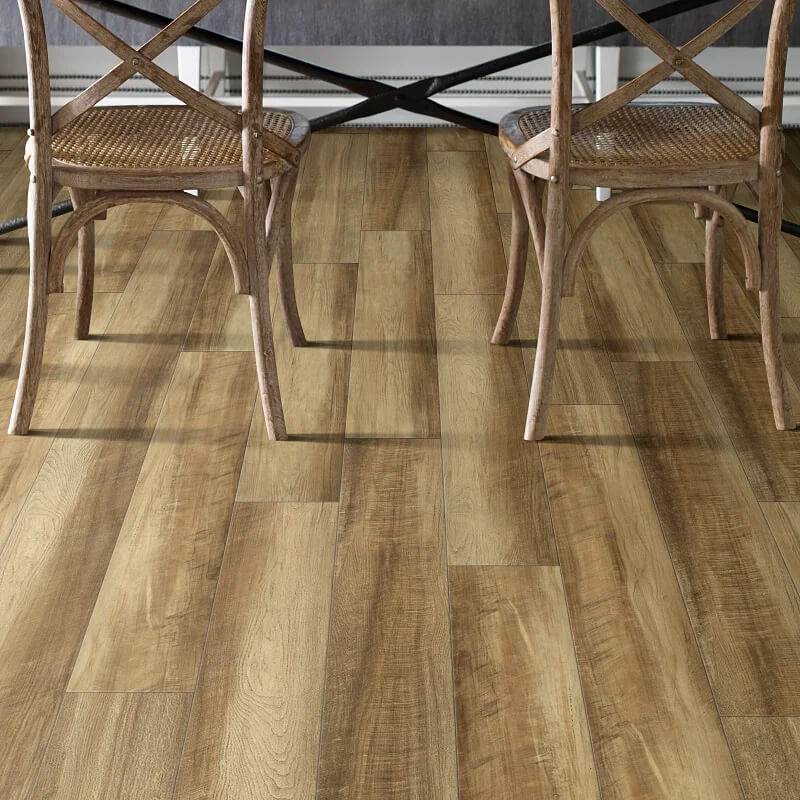Is Vinyl Flooring the Right Choice for Your Kitchen?
There is a lot to love about vinyl flooring. What used to be commonly found on a roll and installed with messy glue, is now much easier- and less messy -to install. It’s still available in sheet form, but now you can also buy it in plank or tile formats.
Thanks to improved technology, vinyl flooring is very resilient. The fact that vinyl isn’t affected by moisture makes it a great flooring solution for areas where the potential for mess is high, like your kitchen, for instance. But what about other flooring solutions? How do they compare? Read on to find out.
Interested In Tile?

If you are considering having your kitchen floor tiled, you probably want something that will hold up to all life throws at it. Tile is a worthy contender. It’s sturdy, waterproof, difficult to scratch and easy to keep clean with a broom and mop. However, tile also has some limitations. Having it installed can be tedious; the glue, also known as mortar, takes hours to set and then must be grouted, which requires additional dry time. Speaking of grout, it can be the weakness of a tile floor. Grout can stain easily, crack and allow water to seep between the tiles, or crumble and fall out entirely.
With vinyl tile, there is no mortar required and no grouting. Some brands have a “grout line” but it’s just for show. Vinyl tiles attach to one another through a “click-lock” technology similar to tongue and groove. They form one continuous floor, which happens to be waterproof. Just as easy to keep clean as regular tile, vinyl can be swept and mopped, but you won’t need to deal with stained or damaged grout that can crack, crumble, or fall out.
Interested In Hardwood?

If the wood look is what you are after for your kitchen, tread lightly. Hardwood flooring does not thrive in damp conditions, so it’s not ideal for use in kitchens, where life can get messy. There are other options; many types of floors today offer something that is wood-like or wood-looking. Examples include engineered hardwood and laminate flooring.
Similar to vinyl tile in that they are produced for installation in pieces that click together and form a continuous floor, engineered and laminate floors can be tolerant to moisture, but not repeated or prolonged exposure. Although some laminate floors are waterproof, the core of both it and engineered floors is frequently HDF, or high density fiberboard, which is made from wood.
Unlike the other options, vinyl plank flooring looks like wood, but has the added benefit of being totally inorganic, so it will not be affected by wetness, making it excellent for use in kitchens. It’s available in a wide variety of styles in all sorts of different stains, from bright and crisp to dark and broody. You can even get vinyl planks that appear to be distressed, if you like the rustic look, or have them installed in an alternative layout, such as chevron or herringbone.
Ready to explore more? Visit our helpful staff at DeHaan Tile & Floor Covering. We can help review all your options, recommend a solution that will fit your style and budget, and set you up with installation, so you can get your kitchen the flooring upgrade that it needs.
